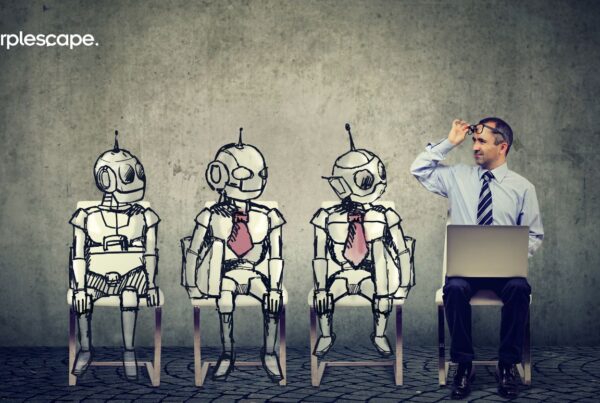
Introduction
As a business leader, providing a seamless and satisfying customer experience can feel like a balancing act between efficiency and personalization. The stakes are high, with customers expecting real-time responses, personalized interactions, and effortless resolutions.
Generative AI has emerged as a powerful tool to not only meet these expectations but also to surpass them, enhancing customer satisfaction in ways that were previously unimaginable. This blog explores ten ways Generative AI is revolutionizing customer service and boosting customer satisfaction.
1. Personalized Interactions at Scale
Personalization is at the heart of creating memorable customer experiences. Generative AI empowers businesses to provide highly personalized interactions at scale. By analyzing customer data—such as past interactions, purchase history, and browsing behavior—AI can tailor responses and recommendations to individual preferences. Whether through chatbots, virtual assistants, or email responses, AI delivers relevant and contextual information that resonates with customers.
An AI-driven system can suggest products based on a customer’s previous purchases or recommend solutions based on common issues related to their account. This level of personalization makes customers feel valued, understood, and more likely to remain loyal to a brand. When each interaction feels bespoke, customer satisfaction rises as individuals perceive that the company truly understands their needs.
For example, popular coffee chains can learn each customer’s preferences, suggesting personalized drink options based on past orders. If a customer frequently orders a medium oat milk latte, the AI will recommend that they drink along with seasonal add-ons like caramel syrup during the colder months.
2. Reduced Resolution Times
One of the most significant pain points in customer service is the time it takes to resolve an issue. Generative AI dramatically reduces these resolution times by processing and analyzing customer queries in real-time. Unlike human agents, who may need time to investigate or consult multiple resources, AI can instantly retrieve relevant information and provide accurate responses.
This efficiency is particularly valuable for routine or frequently asked questions, where AI can handle inquiries without human intervention. Customers receive fast solutions without having to wait in a queue, which improves their overall experience. Even in cases where human agents are required, AI can assist by gathering preliminary information, further expediting the process and allowing human representatives to focus on more complex issues.
For example, consumer electronics companies use AI to resolve customer issues quickly. When customers encounter common problems, such as smartphone freezing, the AI chatbot suggests solutions in real time. Suppose a customer’s phone isn’t charging. In that case, the AI can instantly provide troubleshooting steps like restarting the device or cleaning the charging port, cutting the resolution time from hours to minutes.
3. Consistency Across Channels
In a multi-channel world where customers interact with brands via various platforms—social media, email, live chat, phone, etc.—consistency is key. Generative AI ensures that customers receive the same level of service quality, regardless of the channel they use. By centralizing knowledge and responses, AI eliminates the discrepancies that often arise when human agents handle queries across different platforms.
A customer who begins a conversation on social media and later moves to email will not have to repeat their issue. Generative AI retains the context and history of previous interactions, ensuring a smooth and seamless experience across channels. This consistent communication fosters trust and reliability, leading to higher levels of customer satisfaction.
Online furniture retailers benefit immensely from AI-driven customer support across multiple channels—website chat, email, and social media. A customer who starts an inquiry via Instagram about delivery times can follow up through live chat on the website without needing to repeat any details. The AI maintains a record of the conversation and ensures consistency in responses, regardless of the channel.
4. Continuous Learning and Improvement
Generative AI doesn’t just maintain a static knowledge base; it continuously learns and improves from each interaction. Machine learning algorithms enable the AI to become better over time, understanding more nuanced customer inquiries and providing more accurate responses. This ability to evolve ensures that the AI system remains up to date with the latest customer trends, preferences, and common issues.
For businesses, this means that customer service quality improves over time, with fewer errors and quicker resolutions. Customers benefit from increasingly accurate, relevant, and sophisticated interactions, enhancing their satisfaction as they experience fewer frustrations and more seamless support.
Auto service companies can use AI chatbots to handle customer inquiries about car repairs. Over time, the AI learns from customer interactions, improving its responses. For instance, when customers ask about the most common car issues, the AI provides faster, more accurate advice, even suggesting preventive maintenance tips. The more it interacts, the better it becomes at anticipating customer needs.
5. Seamless Handover to Human Agents
While Generative AI is capable of resolving many issues autonomously, there are times when human intervention is necessary. In such cases, AI facilitates a seamless handover to human agents, providing them with all the context and details from the prior interaction. This ensures that customers do not have to repeat themselves or explain their issue from scratch, significantly reducing friction in the service process.
By streamlining this transition between AI and human agents, companies can maintain efficiency while also ensuring that complex or emotionally charged issues are handled with the empathy that only a human can provide. The balance between AI efficiency and human understanding creates a more holistic customer service experience, further boosting customer satisfaction.
For example, healthcare service providers can implement AI to handle preliminary patient inquiries. It ensures a smooth handover to human agents for complex issues. When patients start with the AI, they provide details about symptoms and concerns. If the query requires a human touch, the AI transfers all relevant information to a healthcare professional, ensuring the patient doesn’t have to repeat their story.
6. Intelligent Sentiment Analysis
Generative AI has the capability to detect and interpret customer emotions during interactions through sentiment analysis. Whether a customer is frustrated, angry, or satisfied, AI can pick up on these emotional cues and adapt its responses accordingly. If a customer shows signs of frustration, the AI may offer more empathetic responses or prioritize the query for human intervention.
This emotional intelligence allows businesses to respond more appropriately to customers’ emotional states, making interactions feel more human and personalized. By showing understanding and care, AI-driven sentiment analysis helps reduce negative experiences and contributes to higher satisfaction by addressing emotional needs alongside functional ones.
Airlines can leverage AI to gauge customer sentiment during interactions. For example, if a customer is visibly frustrated while booking a flight, the AI detects the negative sentiment and escalates the situation to a human agent with a preemptive offer for a seat upgrade or lounge access. This sentiment-driven response ensures that customer frustrations are dealt with before they escalate.
7. Empowering Self-Service
Customers increasingly value the ability to solve their problems independently, and Generative AI plays a pivotal role in enabling self-service. AI-driven chatbots, virtual assistants, and knowledge bases empower customers to find solutions on their own, without the need to contact human agents. By making troubleshooting guides, FAQs, and product information readily available, AI reduces the effort customers need to put in to resolve their issues.
Self-service options are particularly appealing for tech-savvy customers who prefer quick and efficient solutions. With AI guiding the process, customers feel more in control, leading to a sense of empowerment that enhances overall satisfaction.
Home appliance repair services offer AI-powered self-service portals where customers can troubleshoot issues with their appliances. Suppose a customer’s washing machine breaks down, they can access the AI assistant to diagnose the problem, schedule a repair, or even order parts directly, without needing to speak with a human agent.
8. Hyper-Personalized Marketing and Offers
Beyond customer support, Generative AI is also reshaping the marketing landscape by delivering hyper-personalized offers and campaigns. AI analyzes data such as browsing behavior, purchase history, and demographics to tailor marketing messages that resonate with individual customers. Rather than bombarding all customers with generic ads, AI can curate product recommendations and special offers that are highly relevant to each user.
After a customer browses a certain category of products, AI can suggest complementary items or provide exclusive discounts. This level of personalization makes customers feel like the brand is catering directly to them, increasing engagement and satisfaction with the brand.
Gadget retailers can take advantage of AI to send hyper-personalized marketing offers. For instance, after a customer purchases a high-end laptop, the AI sends a follow-up email suggesting accessories like laptop stands or cases, based on the customer’s preferences and browsing history. It may also offer a discount code for their next purchase, making the recommendations both relevant and timely.
9. Reducing Agent Workloads to Improve Human Interaction Quality
By handling repetitive and low-complexity tasks, Generative AI significantly reduces the workload on human agents. This allows agents to focus on more complex and meaningful customer interactions that require human insight or empathy. As a result, the quality of human interactions improves, as agents are no longer overwhelmed by routine inquiries.
When human agents can dedicate their time to more significant issues, they are able to offer higher levels of care and attention to each customer, fostering deeper connections and greater satisfaction. AI and human agents working in tandem create a balanced service model where efficiency meets emotional intelligence.
Travel agencies have started to use AI to handle routine tasks such as booking confirmation and answering frequently asked questions. This frees up their human agents to focus on more personalized interactions, such as customizing high-end vacation packages or addressing more intricate travel concerns.
10. Real-Time Feedback Collection
Customer feedback is crucial for improving service quality, and Generative AI excels at collecting and analyzing feedback in real-time. During interactions, AI can unobtrusively gather customer input through surveys, ratings, or direct feedback prompts. This immediate feedback gives businesses valuable insights into customer satisfaction levels and allows them to make swift adjustments to service strategies.
If AI detects a recurring issue or a drop in satisfaction, it can alert managers in real-time, enabling them to address the problem before it escalates. By closing the feedback loop quickly, businesses can improve customer service on the fly, leading to higher satisfaction rates.
For example, telemedicine companies can collect patient feedback in real-time through AI during virtual consultations. As a patient finishes a consultation, the AI prompts them for a quick rating or asks for feedback about the service. If the feedback is less than satisfactory, it immediately alerts customer service representatives to address any concerns, helping to improve service on the spot.
Conclusion
Generative AI is not just a tool for automating customer service—it’s a transformative technology that enhances every aspect of the customer experience. From personalized interactions and reduced resolution times to empowering self-service and improving human-agent interactions, AI enables businesses to meet and exceed customer expectations in ways that were once unimaginable.
As customer expectations continue to evolve, adopting Generative AI will be critical for businesses looking to maintain a competitive edge. By delivering faster, more personalized, and consistent support, Generative AI is poised to become a cornerstone of exceptional customer service, driving higher satisfaction and long-term loyalty.
For companies aiming to boost customer satisfaction and stay ahead in a competitive market, integrating Generative AI into their customer service strategy is no longer optional—it’s essential.




